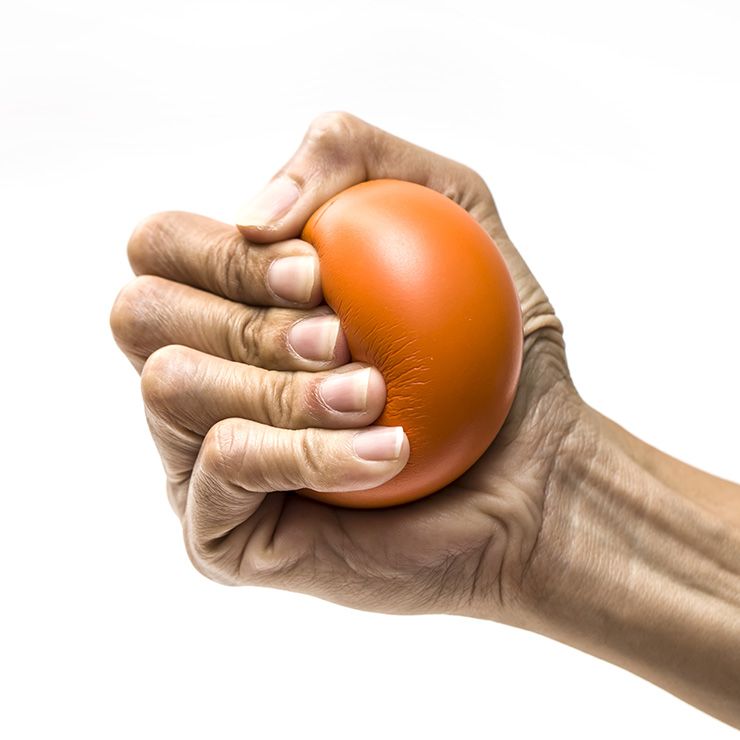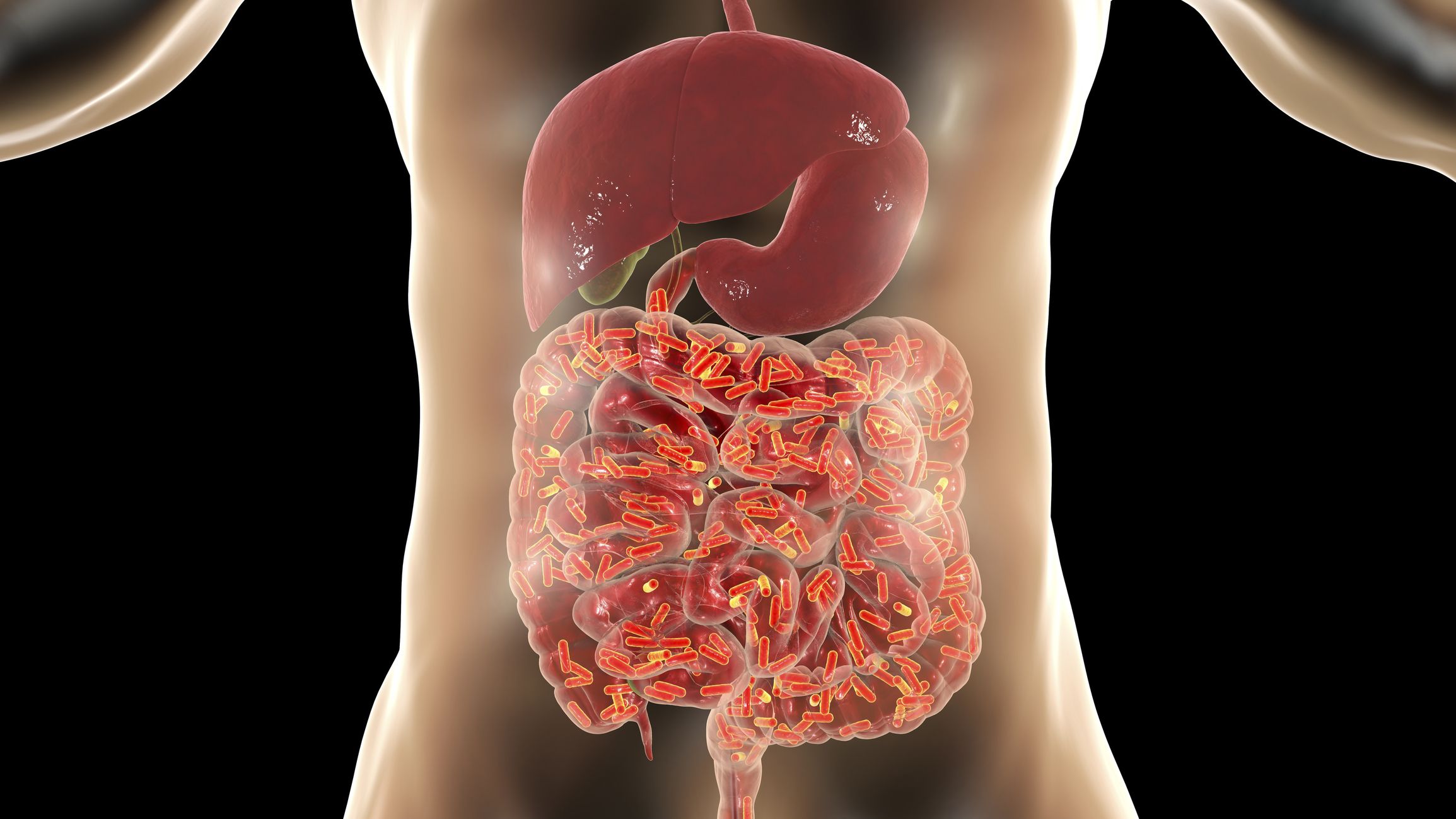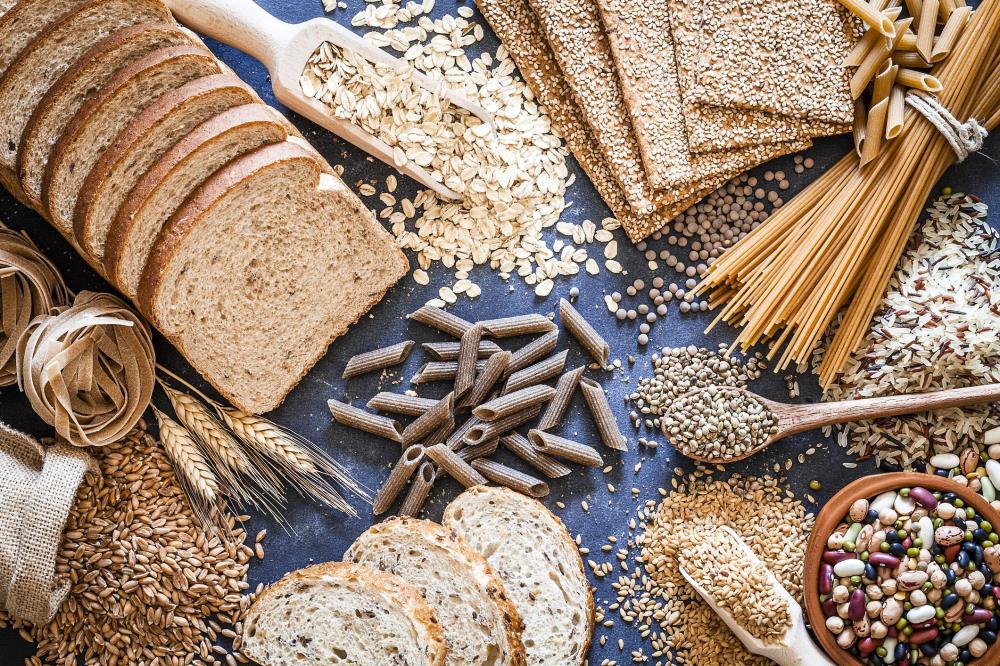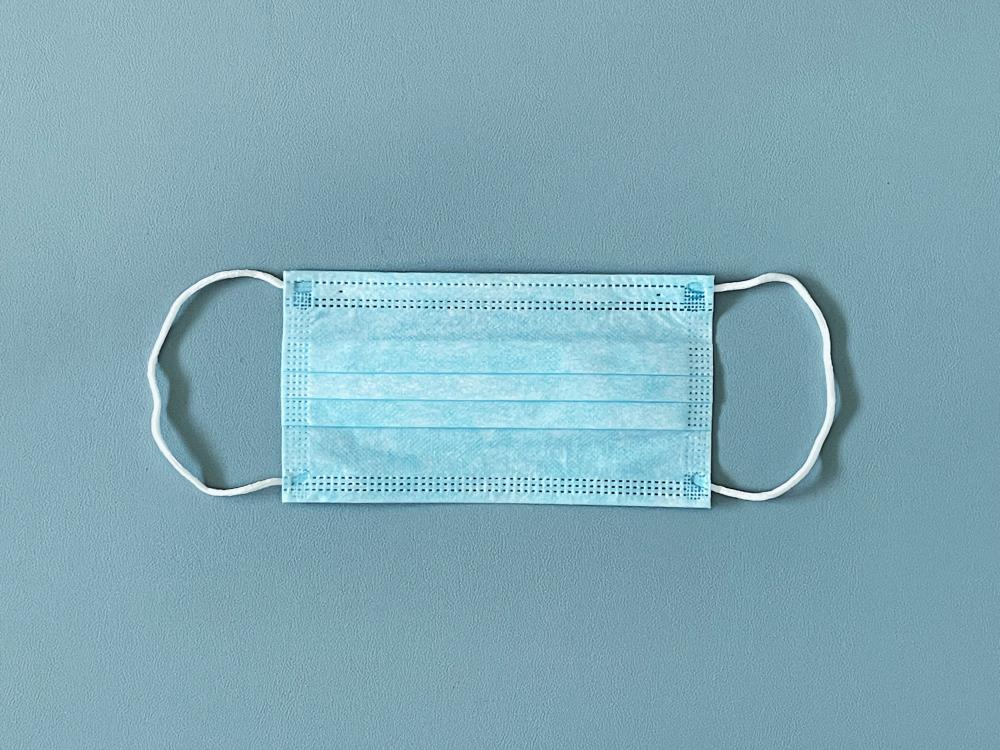As the world moves through year three of a pandemic, the universal commitment to staying healthy has never felt more relevant. There’s a keen awareness of immunity to which we’re all adapting, and while a new normal settles in and travel, social events, and gatherings resume, it’s in everyone’s best interest to, well, not get sick—not just with COVID-19, but with any infection that can throw a wrench in everyday life.
Of course, none of us have full control over the germs we encounter—especially those of us who are always on the move. But we can practice preventative measures that strengthen our preverbal armour against illness, and ideally, prevent the dreaded symptoms every cold and flu season brings. Because let’s face it—no one enjoys coming down with a cough, fever, or sore throat, let alone being stuck on the couch with a box of tissues when there’s work to be done and fun to be had.
If you want to amp up your protection against sickness for the sake of not just you, but everyone around you, keep reading for tips we’ve gathered from pro cold avoiders, doctors, and a registered dietician. Their advice will help you stay as healthy as possible for as long as possible—not just in the way of dodging sniffles, but by boosting your overall wellness and preventing chronic illness and disease. Because whether you’re fighting a cold or something more serious, it’s all connected.






























Drazen Zigic ©Getty Images
1) Keep up with your vaccinations
Oncologist Dr Michael Sherman offers the important reminder that not just the COVID-19 vaccine and boosters, but other routine shots are designed to help keep everyone as healthy as possible.
Yearly influenza vaccines for everyone 6 months or older are recommended, according to the Australian Immunisation Handbook. It is also recommended that infants and those in groups who may be at a higher risk are vaccinated against Hepatitis B, the Zostavax (shingles) vaccination is recommended if you are aged 60 or older (or 50 if you are living with someone who is immunocompromised) and a tetanus booster is recommended if you are 50 years old or 65 years old if it has been over 10 years since your previous dose.
Drazen Zigic ©Getty Images
2) Sleep it off
“Getting 8 to 10 hours of sleep a night is how I stay healthy,” says Amelia Narcisi. Sleep experts agree that getting plenty of shut-eye is key for a strong immune system. In fact, research shows that people who sleep only five to six hours a night have a 30 per cent chance of catching a cold when exposed to a virus; those who get more than seven hours reduce their risk to 17 per cent.
Drazen Zigic ©Getty Images
3) Steer clear of sugary beverages
“[Soft drink] and fruit juices contain a lot of sugar!” says dietitian Nicole Lindel. Too much is especially dangerous for those with diabetes mellitus, as it can lead to elevated blood sugars, she adds, but it’s not exactly healthy for anyone. Research says high sugar intake increases risk of heart disease, obesity, and a fatty liver, all of which can compromise immunity.
Drazen Zigic ©Getty Images
4) Strengthen your mental resolve
Talk about mind over matter: "When people around me complain about how sick they get at specific times of the year, I say that I rarely get sick—and I don’t. It’s the power of belief,” says nurse Elisha Lowe. More research is warranted to prove this, but one study did find psychological well-being to increase human body immune response.
Drazen Zigic ©Getty Images
5) Try zinc
Zinc is essential to immune system function and wound healing, per the Mayo Clinic. Getting enough through a balanced diet is ideal, but some studies have found that supplements can be especially helpful in shortening a cold, or even stopping one in its tracks.
Drazen Zigic ©Getty Images
6) Prioritise omega-3 fatty acids
Omega-3 fatty acids by way of fatty fish are known for their eye and heart health benefits, but recent research hints at their immune-boosting potential. “Not a fish eater? You can also try incorporating flax seeds and chia seeds into your daily routine,” says Lindel.
With that being said, Dr Sherman adds that fish appears to be the most effective form of omega-3 delivery, as studies have not been able to convincingly duplicate its benefits with supplements. So, he recommends going for fish that are high in omega-3s, but low in mercury, including salmon, trout, mackerel, anchovies, herring, and sardines.
Drazen Zigic ©Getty Images
7) Get a handle on stress
It’s been proven to weaken the immune system, yet it’s impossible to avoid. So your goal should be to manage stress in a healthy way, says stress and communication expert Dr Kathy Gruver. “I work hard on controlling my responses to stressors through dancing, daily meditation, visualisations, and affirmations.”
Drazen Zigic ©Getty Images
8) Lean into lean proteins
Fattier cuts of animal protein, such as bacon and sausage, typically have saturated fat, explains Lindel. Health Direct recommends limiting calories from saturated fats to less than 10% of the total calories you eat and drink each day. “Studies suggest that eating proteins like fish, beans, chicken, turkey, nuts, and low-fat dairy, rather than fattier meats, helps prevent heart disease.” Plus, many protein-rich foods contain zinc, which fuels a healthy immune system, according research.
Drazen Zigic ©Getty Images
9) Stay squeaky clean
According to Better Health, hand washing prevents the spread of germs, including COVID-19. “I wash my hands all the time and open doors and touch elevator buttons with a clean tissue whenever possible,” says media specialist Dan Collins. “When I return to my desk, I immediately grab my supply of antibacterial hand wipes. And whenever my eye itches, I never use the tip of my finger to scratch unless I can sanitise my finger first; instead, I use my knuckle or the back of my hand, as these areas have had less contact with germs than my fingertips.”
Collins also holds his breath “for a good 15 seconds” if he walks by someone who sneezes, and he takes zinc at the first sign that a cold is trying to take hold (usually a telltale back-of-the-throat tickle)—a habit that research supports.
Drazen Zigic ©Getty Images
10) Eat the rainbow
“You’ve likely heard this before, but it is super important to incorporate more fruits and vegetables into your diet,” says Lindel. After all, they contain the antioxidants and nutrients the body needs to fight off illness.
“I always advise my patients to ‘eat the rainbow’ as each color or pigmentation has a proposed health benefit,” she adds. For example, she says that lycopene—the pigment responsible for giving grapes, tomatoes, and watermelon their red color—has been shown to have antioxidant effects in certain cardiovascular or neurodegenerative diseases and in some cancers.
Drazen Zigic ©Getty Images
11) Be a gym rat
Regular exercise strengthens the immune system and makes you less likely to catch upper respiratory infections, according to a study in the Journal of Sport and Health Science. The National Library of Medicine reports a few ways it fights illness, including that it may help flush bacteria from the lungs and airways, and that by lowering stress hormones, it keeps immunity strong.
“Moderate exercise helps a body make and distribute disease-fighting immunologic cells,” adds clinician Dr Michelle Forcier. The Australian Department of Health and Aged Care recommends 30 minutes of moderate exercise every day. "Things like walking the dog, working the garden, and cleaning the house can count—as long as you are moving and your heart beats a little faster,” Dr Forcier says.
Drazen Zigic ©Getty Images
12) Seek community
“Social support has been linked to a list of short and longer term positive health outcomes, including a healthful impact on immune function,” says Dr Forcier. It’s also linked to resiliency in immune, neuroendocrine, and cardiovascular systems. “While it’s important to decrease means of transmitting or becoming infected,” she adds, “it is still important to engage and connect with friends and loved ones.”
Drazen Zigic ©Getty Images
13) Fight viral infection with probiotics
Probiotics—in food or supplement form—have been shown to maintain balance of healthy bacteria in the gastrointestinal tract, says Lindel. Research has also found that they have a protective effect against certain viral infections.
The bacteria eating microbes are naturally found in fermented foods like greek yogurt, kefir, kimchi, or miso soup, explains Lindel, but if you plan on incorporating a supplement, she recommends working with your doctor to find the right one. “There are many strains available on the market, each with its own specific purported health benefits,” she says.
Drazen Zigic ©Getty Images
14) Telecommute
There’s a reason companies across the country moved to remote work environments at the height of the pandemic. “When I commuted to work and used mass transit, I was always getting sick,” says Christina Halper Gorini. “Since finding a new job that lets me work from home, I’m almost never sick.”
Drazen Zigic ©Getty Images
15) Stay hydrated
“Aim for at least 8 glasses per day! This can vary depending on your gender, age, and physical activity,” says Lindel. “Adequate hydration has been shown to have a positive effect for several conditions, including constipation, exercise asthma, and hyperglycemia in diabetic ketoacidosis.” It also helps maintain overall wellbeing by regulating body temperature, lubricating joints, and flushing out waste, per Better Health.
Drazen Zigic ©Getty Images
16) Spend time in nature
“Exposure to nature and outdoor environments has been shown to reduce heart rate and blood pressure, decrease stress, anxiety, and depression, lower stress hormone levels, and can improve attention and mental acuity,” says Dr Sherman. A study from Japan also showed a trip to the forest can improve immune function.
Drazen Zigic ©Getty Images
17) Don't fear carbohydrates
Your body needs them for fuel so it can—you guessed it!—protect you from illness. “Carbohydrates should be consumed in small, consistent amounts throughout the day,” says Lindel. She recommends going for those that are high in fibre such as whole grains, fruit, beans, and starchy vegetables like potatoes, corn, and peas.
“Ultra processed, low fibre diets can have a negative impact on the immune system; whereas a high fibre diet has been shown to help prevent chronic inflammation,” Lindel adds.
Drazen Zigic ©Getty Images
18) Know when to power down
“I haven’t had a cold in probably 15 years, but I’m a huge believer in nipping illness in the bud,” says Ken Montgomery. “If I suspect that something might be coming on, I won’t work late, I won’t go to the gym, and I’ll make sure I get more sleep. All it takes is one day and I’m back to normal. I think most people have this ‘I’ll fight through it’ mentality, and all that does is exacerbate it.”
According to the Mayo Clinic, studies show that people who don’t get enough quality sleep are more prone to illness, and they also have a harder time recovering from it.
Drazen Zigic ©Getty Images
19) Get more vitamin D
Vitamin D not only has immune-boosting properties, it also optimises bone health, says Lindel. “However, there are very few foods rich in vitamin D aside from certain fish, dairy, and fortified products,” she adds. “While we can get vitamin D from the sun, another option would be adding a vitamin D supplement like Everlywell’s Vitamin D3 Gummies into your routine.”
Sherman adds that low vitamin D levels can increase your risk of respiratory infection, including influenza and possibly COVID-19. “People of colour, those who are obese, and those spending most of their time indoors are at highest risk of vitamin D deficiency,” he says. According to a survey by the Australian Bureau of Statistics, 23% of Australian adults were deficient.
To make sure you’re getting enough—be it through the sun (while wearing sunscreen, of course!), food, or supplements—Lindel recommends asking your primary care doctor to check your levels with a blood test.
Drazen Zigic ©Getty Images
20) Wear a mask
While mask guidance varies state to state, the Australian Department of Health and Aged Care maintains that they are a critical public health tool. It’s recommended to wear one in public when there are lots of people around—especially indoors—in order to keep yourself and those around you safe.
Drazen Zigic ©Getty Images
21) Reduce your salt intake
Lindel recommends getting creative in the kitchen with flavourful seasonings like garlic powder, lemon juice, onion powder, ginger, and balsamic vinegar instead of reaching for that extra pinch of salt. “The recommended daily value for sodium is less than 2,300 milligrams per day. To put that into perspective, that is approximately one teaspoon of table salt!” she says. Because the compound is found in many foods including canned soup, certain condiments, deli meat, and microwavable meals, it’s easy to eat too much, and that can wreak havoc on your health.
“A high salt diet can have a negative impact on your immune system,” Lindel warns. “Too much may stimulate an inflammatory response and may drive the progression and severity of autoimmune diseases.”
Drazen Zigic ©Getty Images
22) Schedule your annual checkup
Life may feel too busy to squeeze in what feels like an unimportant appointment, but rest assured that seeing your doctor yearly is one of the best things you can do to stay healthy. “An annual physical provides an opportunity to check in on your overall health and well-being,” says Lindel. “When it comes to health, it is better to be proactive rather than reactive.”
Drazen Zigic ©Getty Images
23) Drink coffee (but not too much or too late in the day)
Research has found that coffee may reduce your chances of developing dementia and Alzheimer’s disease. It also has been shown to reduce the risk of heart disease and improve longevity, Dr Sherman adds. “Drink in moderation, too much coffee will keep you up at night and can also contribute to osteoporosis,” he says.
Drazen Zigic ©Getty Images
24) Stop smoking (or vaping)—or don’t start
“Smoking is associated with heart and lung disease, as well as numerous cancers including throat, bladder, lung, kidney, stomach, and pancreatic,” explains Dr Sherman. “People who smoke also get more respiratory illnesses and catch more colds.”
And contrary to what some might think, vaping is no safer. “E-cigarettes contain nicotine and are addicting; they also contain cancer-causing chemicals, and inhaling them can cause severe toxic lung injury,” Dr Sherman adds.
Drazen Zigic ©Getty Images
25) Don’t neglect dental hygiene
Periodontal disease is a severe inflammatory disease of the gums that can cause bleeding, swelling, and loss of teeth. But there can be effects outside the mouth as well, Dr Sherman explains.
“People with periodontal disease are more likely to have diseases affecting circulation. These include coronary artery disease, heart attacks, strokes, and peripheral artery disease,” he adds, which is impaired circulation to the legs or arms. To prevent these issues and the illness that may accompany them, brush your teeth twice a day, floss daily, see your dentist regularly for checkups and deep cleanings, and don’t smoke.
Drazen Zigic ©Getty Images
26) Go for gains
Specifically engaging in strength training offers the same health benefits as staying generally active, but perhaps on a bigger scale. It’s all about making your muscles work harder than they’re used to, which therein, makes the rest of your body work harder, too. Better Health says some sorts of muscle strengthening exercise are recommended two days a week for health benefits.
Drazen Zigic ©Getty Images
27) Find gratitude
“Studies demonstrate that positive personalities or dispositions, as well as induced positive emotional changes, are associated with improved immune function and lower risk for illness,” says Dr Forcier. “While it is understandable to sometimes feel overwhelmed by stress, stepping back and appreciating some of the helpful and healthful aspects of our lives can be important. Appreciating our gifts, good fortunes, and strengths are important in counterbalancing the demands that come our way. Understanding and appreciation can go a long way towards grounding those positive aspects that help us stay healthy.”
Drazen Zigic ©Getty Images
28) Know your family’s health history
And schedule health screenings accordingly. Infections take advantage of compromised immune systems, including those with other medical or health conditions, Dr Forcier explains. “Preventive care recommends screening for high blood pressure, diabetes, high cholesterol, and certain cancers so to promote early detection and treatment,” she says. “Talk to your doctor about what health screening tests are appropriate for your age and other health or family health conditions.”
Drazen Zigic ©Getty Images
29) Have more sex
Believe it or not, research has found frequent sex to have immune boosting benefits. One study published in Psychological Reports found that people who had sex one to two times a week showed significantly increased levels of the immune system protein immunoglobulin A, compared to those who didn’t. More recently, a study that analysed the effect of participants’ sex lives on COVID-19 risk found that the majority of those who had sex more than three times a month were not infected, and those who did test positive experienced mild cases, compared to those who had less sex.
Drazen Zigic ©Getty Images
30) Drink green tea
Green tea contains antioxidants called catechins that offer anti-inflammatory benefits to the entire body, including the immune system. A review of research that studied green tea’s impact on immunity found that regular consumption may have preventive effects on influenza and the common cold, but more research on the topic is warranted.










